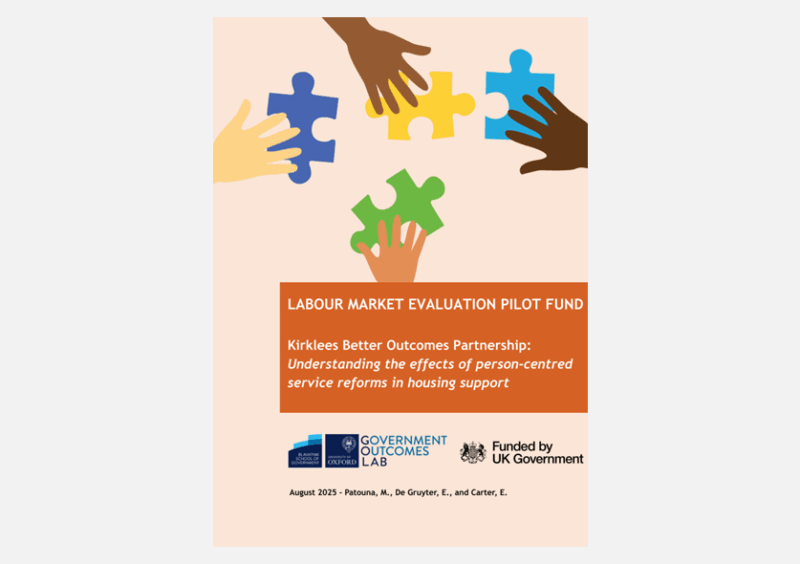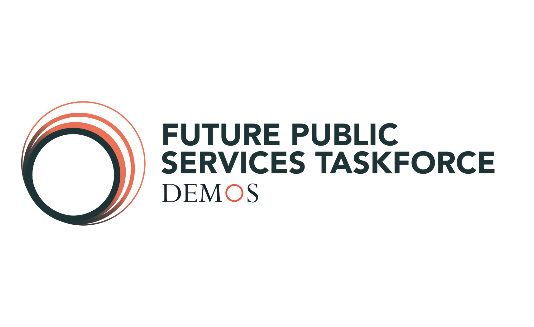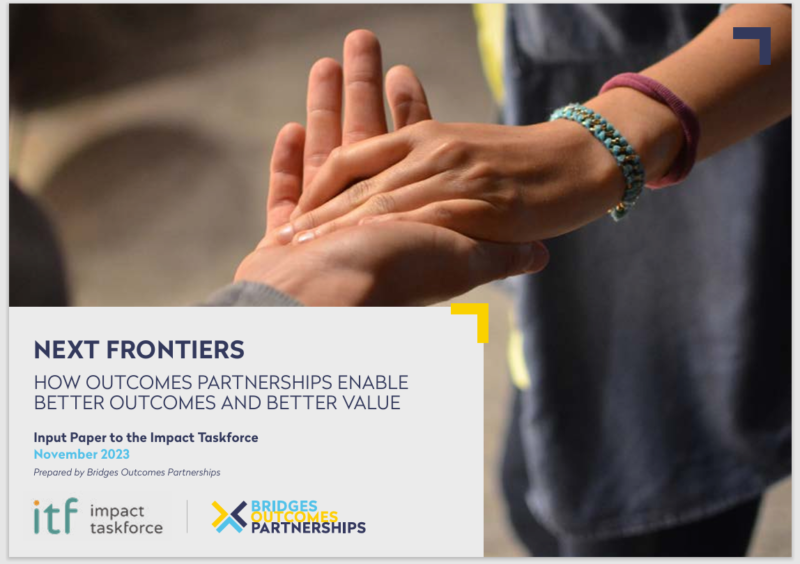13.12.2024 | Publication
‘Shifting Gears’: A new report from BOP & GSG Impact

For over a decade, outcomes partnerships have been used by governments to deliver higher quality public services while driving better value for money. However, despite robust evidence supporting their effectiveness and benefits, institutional, political, and perception challenges have prevented the adoption, at scale, of these approaches by the public sector.
This report assesses these challenges and provides advocates and market-builders with tools and recommendations to strengthen their efforts to promote the adoption of outcomes-based approaches.
In collaboration with GSG Impact, we carried out a series of interviews with experts from different geographies, supported by an extensive literature review. Seven challenges to advancing the use of outcomes partnerships by governments were identified:
- annual budget cycles
- rigid public contracting procedures
- limited technical expertise
- availability and management of data
- (struggle for) political support
- political (in)stability
- the perception of incompatibility around public-private cooperation in the delivery of public services.
The report provides a series of long-term strategic recommendations aimed at building and strengthening conducive environments that allow for increased uptake of outcomes partnerships by governments:
- Focus on the system change, rather than just the cost efficiencies, that outcomes partnerships can
drive; - Design outcomes partnerships grounded to political and regulatory contexts, aligning innovation with incentives in the public sector;
- Ensuring ecosystem readiness by promoting capacity building, data access and governance, and cross-learning between more experienced and less experienced stakeholders;
Read the full report here.
With thanks to the team at GSG Impact for their expertise and support in co-writing and co-producing this important document.


